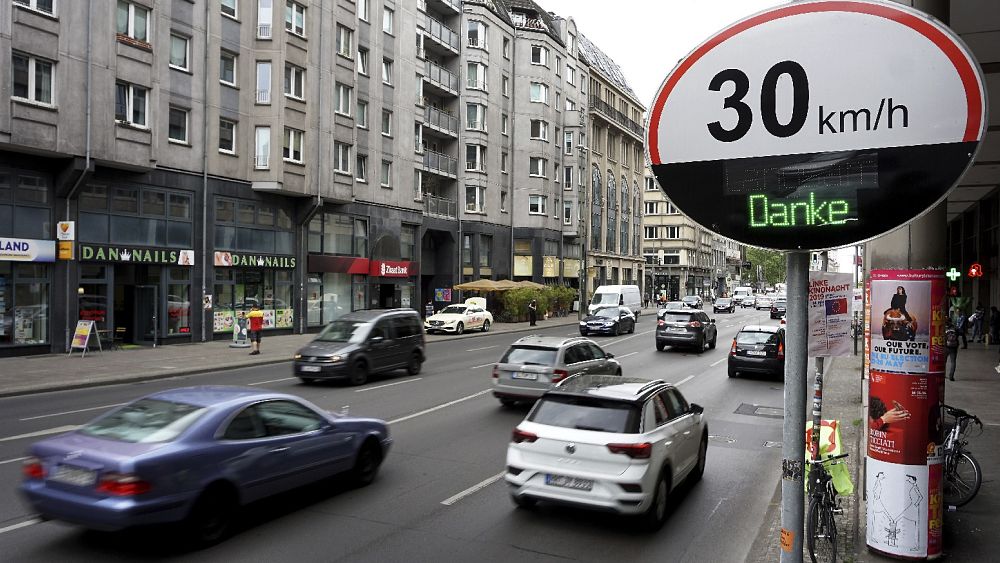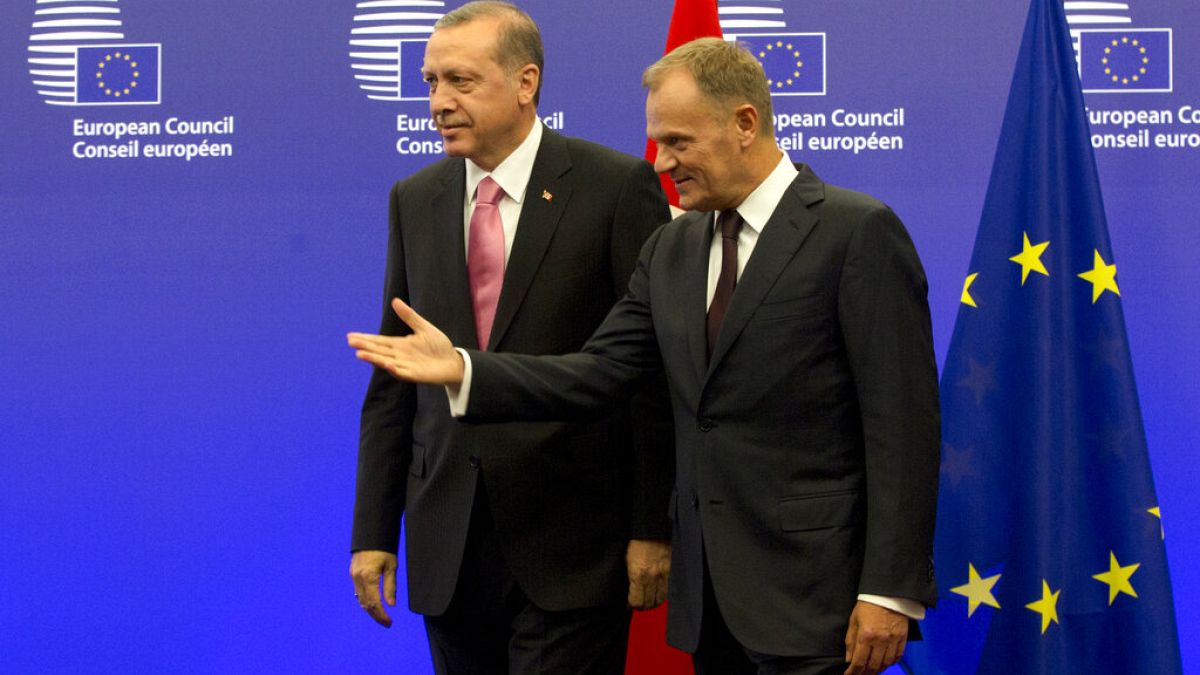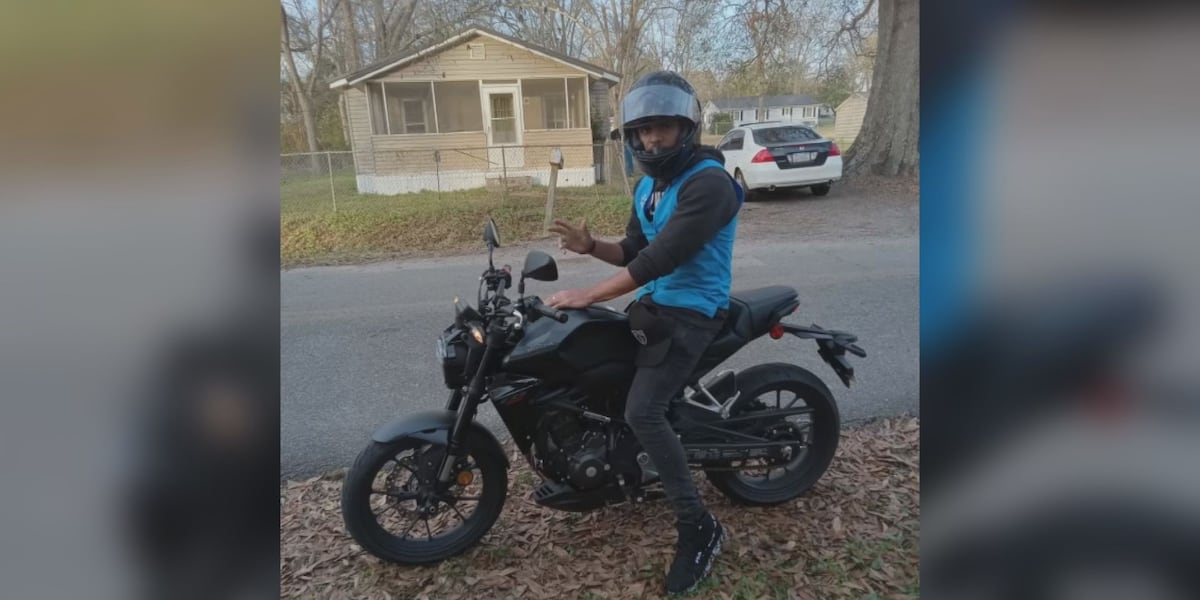World
The ‘City 30’ model wants to reshape European cities. Is it working?

Bologna became the first major Italian city this month to adopt the “City 30” model, a mobility strategy based on imposing a 30 km/h speed limit on the main areas of an urban road network in a bid to reduce accidents as well as air and noise pollution.
For Valentina Orioli, the city’s councillor for mobility and public spaces, this will “create a safer, cleaner, and more liveable city which can face the challenges of sustainability.”
The potential benefits are appealing: less traffic and car accidents, reduced air and noise pollution, and more space for bikes and pedestrians. Orioli confidently told Euronews that the system will create “a seamless mobility, which will tailor the city to the needs of its residents.”
Bologna may be the first Italian city to roll out this policy, but it is in good company across Europe with dozens of cities and towns having already curtailed their speed limits to increase safety and transform the way people interact with the surrounding environment.
But does the City 30 model actually deliver on its promises? Data suggests it does.
An urban philosophy
“The first concept of ‘Zone 30’ started in the Netherlands in the early 1970s, when a group of parents blocked a whole neighbourhood to demand that no more children die in car crashes,” Matteo Dondé, an Italian architect and urban planner, told Euronews.
It was the beginning of the Stop de Kindermoord (“Stop the child murder”) campaign, which eventually led Amsterdam to become the cycling capital we all know today.
From there, the Zone 30 idea evolved into an innovative urban development model which aims to reshape the use of public spaces, prioritising pedestrians at the expense of cars and heavy vehicles. The main tool to achieve this is by lowering the speed limits in interested areas, setting a 30 km/h limit as the norm and granting a 50 km/h exception only on some of the widest roads.
According to Dondé, the first and “most important” result of the City 30 model is a decrease in car crashes and related deaths, since studies show that collisions at a 30 km/h speed rarely result in fatalities.
In turn, this can lead to further benefits, such as reducing traffic and noise levels, promoting a healthier lifestyle for residents, and mitigating the effects of so-called “urban heat islands” — small areas in crowded, densely built-up environments which tend to get warmer due to human activities.
From Graz to Brussels
The first European city to adopt the City 30 model was Graz, in Austria, which imposed a city-wide speed limit of 30 km/h in 1992. Today, the limit is still enforced on about 80% of the city’s road network.
“In the beginning we met some resistance against this measure, but nowadays nobody would eliminate it,” Christian Kozina-Voit, Graz Councillor for transports and the environment, told Euronews.
The administration, in fact, has no plan to abandon it: “We have better air quality, fewer emissions, less noise, less dangerous traffic accidents. There are many advantages,” said Kozina-Voit.
Brussels adopted the City 30 model in 2021. “We immediately noticed a visible and constant reduction in the average speed on all our roads, and this has been maintained over the past two years,” said Camille Thiry, spokesperson for Bruxelles Mobility.
More importantly, the number of pedestrians killed or seriously injured in traffic has been steadily declining, so much so that “the figures for the third quarter of 2022 are the lowest ever recorded in Brussels since 2004.”
“The City 30 model works,” Thiry said, “and we have no regrets about having implemented this action as part of our overall mobility plan.” Moving forward, though, the city plans to focus more on the prosecution of offenders.
Paris, Grenoble, and Edinburgh also adopted the City 30 model, while other cities are considering the possibility, like Luxembourg and Milan.
Spain went a step further and in 2021 introduced a nationwide 30 km/h speed limit for one-lane roads, and 20 km/h for streets where the pavement is not physically separated from the carriageway.
By then, however, some cities had already implemented the City 30 system and adapted it to their specific morphology: Barcelona, for instance, spent years working on an innovative system of “superblocks,” grids of small neighbourhoods designed for cyclists and pedestrians, where car traffic is extremely limited.
Academic challenges
Data from cities that adopted the City 30 model all point to improvements in terms of road safety and life quality. However, isolating the actual impact of the policy is a difficult task, said Anna Bornioli, senior researcher at the Erasmus University of Rotterdam.
“Generally, the 30 km/h speed limit is part of a wider plan to promote sustainable mobility, which can involve other measures such as bike sharing programmes or structural changes. These measures are often enforced simultaneously, so it’s hard to understand how each one of them contributes to the overall results.”
Matthew Watkins, principal lecturer at Nottingham Trent University, agrees that the City 30 model “is a great idea for road safety,” but claims that more research is needed on its implications, for instance on air pollution.
“Some evidence suggests that air pollution can be higher with the City 30 system,” he told Euronews. However, even though cars could pollute more if forced to travel at lower speeds, the lighter traffic could compensate for this. “There are many factors at play,” Watkins said.
One thing is certain: “Traditionally, cities were made for cars, but over the last decades this paradigm has been overturned to put people first,” said Bornioli.
In this context, the City 30 model calls for a new way of living in the urban space and a reassessment of cars and pedestrians’ needs. As more and more European cities adopt it, and more data is gathered, it will become clearer whether the model is truly sustainable.
At the moment, it seems to be working.

World
‘7th Heaven’ Actors Listen to Co-Star Stephen Collins’ Sexual Misconduct Confession for the First Time: ‘He Would Be a Dead Man if That Was My Child’

“7th Heaven” actors Jeremy London and Kyle Searles reckon with co-star Stephen Collins‘ sexual misconduct for the first time in an episode of ID Discovery’s upcoming series “Hollywood Demons” (via The Daily Beast). Collins starred as patriarch Eric Camden on all 11 seasons of the family drama series. He confessed in 2014 to prior sexual misconduct with three underage girls.
Searles, who appeared in the last four seasons of “7th Heaven ” as Mac, says in “Hollywood Demons” that he admired Collins during the making of the show, explaining: “He would drive to work in a beautiful Toyota Prius every single morning when the man was making enough money that he could have been driving up in a Bentley. He could have been decked-out, dressed in the nines, but he was wearing what Jay Leno typically wears, with the blue jeans shirt and jeans. I always felt like I want to be like that. I need to model myself after him more.”
The documentary then shows Searles tearing up while watching Collins confess to sexual misconduct. The actor reacts to the admission by saying: “This is the first time that I’ve ever thought that he’s full of shit.”
“I have like, a knot in my stomach,” Searles adds. “My whole world changed when I had kids, my whole world view. And certainly my tolerance for this. I think that goes without being said. I just think that maybe I put him up on a professional pedestal a bit too much.”
London starred on “7th Heaven” for two seasons, debuting as minister Chandler Hampton in Season 7. He remembered Collins being “America’s dad” during the show’s run and said that his reaction to the allegations against Collins was that people were “messing with somebody that I love and care about.” London claims he was “fired” from “7th Heaven” after a DUI arrest in 2010. He was also accused of battering his ex-wife. London says these experiences painted him as “a bad person” and thus made him hesitant to believe Collins was capable of sexual misconduct since “I was put in the same position and I didn’t do anything.”
When “Hollywood Demons” producers finally play Collins’ confession to London, he reacts by saying: “It’s tough. It’s hard. I’m a dad, first and foremost, above everything else. And so my first thoughts always go to the children. Stephen Collins would be a dead man if that was my child.”
Collins confessed to sexual misconduct in a 2014 interview with Katie Couric that aired on ABC’s “20/20.” He admitted to exposing himself in 1973 to a 10-year-old girl. Collins was 25 years old at the time and told Couric that he immediately knew he had done something “unthinkably wrong.” He also confessed to exposing himself to a 13-year-old girl in 1982 and to a 14-year-old girl in 1994, although Collins stressed to Couric that he is not pedophile and said: “I’m absolutely not attracted, physically or sexually attracted to children.” He was never charged for the sexual misconduct because the cases were beyond the statute of limitations.
In the fallout from his confession, Collins was fired from his role in the comedy sequel “Ted 2” and was dropped from his recurring role on the ABC drama series “Scandal.”
“7th Heaven” actors Beverley Mitchell, David Gallagher and Mackenzie Rosman played three of Collins’ children on the series and addressed his sexual misconduct last year while starting a rewatch podcast for the show titled “Catching Up With The Camdens.”
“All forms of abuse, sexual abuse of any kind, it’s inexcusable,” Gallagher said. “And victims of abuse need to be shown compassion and they should be given support.”
“Hollywood Demons” airs March 24 on ID Discovery. Stream it online through Philo.com.
World
Sudan's military says it has retaken Khartoum's Republican Palace, seat of country's government

Sudan’s military on Friday retook the Republican Palace in Khartoum, the last heavily guarded bastion of rival paramilitary forces in the capital, after nearly two years of fighting.
The seizure of the Republican Palace, surrounded by government ministries, was a major symbolic victory for Sudan’s military against the paramilitary Rapid Support Forces — though it likely doesn’t mean the end of the war as the RSF holds territory in Sudan’s western Darfur region and elsewhere.
SUDAN’S ARMY DENOUNCES VIDEO ALLEGEDLY SHOWING ITS TROOPS CARRYING SEVERED HEADS OF ENEMIES
Social media videos showed Sudanese soldiers inside the palace, giving the date as the 21st day of Ramadan, the holy Muslim fasting month, which corresponds to Friday. A Sudanese military officer wearing a captain’s epaulettes made the announcement in the video and confirmed the troops were inside the compound.
The palace appeared to be in ruins, with soldiers’ stepping on broken tiles. Troops carrying assault rifles and rocket-propelled grenade launchers chanted: “God is the greatest!”
Khaled al-Aiser, Sudan’s information minister, said the military had retaken the palace in a post on the social platform X.
An army soldier walks in front of the Republican Palace in Khartoum, Sudan, after it was taken over by Sudan’s army Friday, March 21, 2025. (AP Photo)
“Today the flag is raised, the palace is back and the journey continues until victory is complete,” he wrote.
Later, curious residents wandered through the palace. Walls stood pockmarked by rifle rounds. Smears of blood led to dead bodies, covered haphazardly with blankets.
Palace’s fall a symbolic and strategic moment
The fall of the Republican Palace — a compound along the Nile River that was the seat of government before the war erupted and is immortalized on Sudanese banknotes and postage stamps — marks another battlefield gain for Sudan’s military, which has made steady advances in recent months under army chief Gen. Abdel-Fattah Burhan.
It also means that the rival RSF fighters, under Gen. Mohammed Hamdan Dagalo, have been mostly expelled from the capital, Khartoum. Sporadic gunfire could be heard throughout the capital Friday, though it wasn’t clear if it involved fighting or was celebratory.
Brig. Gen. Nabil Abdullah, a spokesperson for the Sudanese military, said its troops are holding the palace, surrounding ministry buildings and the Arab Market to the south of the complex.
Khartoum International Airport, only some 2.5 kilometers (1.5 miles) southeast of the palace, has been held by the RSF since the start of the war in April 2023.
Suleiman Sandal, a politician associated with the RSF, acknowledged the military took the palace and called it part of “the ups and downs” of history.
The RSF later issued a statement claiming its forces “are still present of the vicinity of the area, fighting bravely.” A drone attack on the palace believed to have been launched by the RSF reportedly killed troops and journalists with Sudanese state television.
Late Thursday, the RSF claimed it seized control of the Sudanese city of al-Maliha, a strategic desert city in North Darfur near the borders with Chad and Libya. Sudan’s military has acknowledged fighting around al-Maliha, but has not said it lost the city.
Al-Maliha is around 200 kilometers (125 miles) north of the city of El Fasher, which remains held by the Sudanese military despite near-daily strikes by besieging RSF.
The head of the U.N. children’s agency has said that Sudan’s conflict has created the world’s largest humanitarian crisis. UNICEF on Friday separately decried the looting of food aid meant to go to malnourished children at Al Bashir Hospital on Khartoum’s outskirts.
“Commercial supplies and humanitarian aid have been blocked for more than three months due to ongoing conflict along key routes,” UNICEF warned. “The result is a severe shortage of food, medicine and other essentials, with thousands of civilians trapped in active fighting.”
The war has killed more than 28,000 people, forced millions to flee their homes and left some families eating grass in a desperate attempt to survive as famine sweeps parts of the country. Other estimates suggest a far higher death toll.
The Republican Palace became the seat of power during the British colonization of Sudan. It also saw some of the first flags of independent Sudan raised in 1956. The complex had also been the main office of Sudan’s president and other top officials.
The Sudanese military has long targeted the palace and its grounds, shelling and firing on the compound.
Sudan has faced years of chaos and war
Sudan, a nation in northeastern Africa, has been unstable since a popular uprising forced the removal of longtime autocratic President Omar al-Bashir in 2019. A short-lived transition to democracy was derailed when Burhan and Dagalo led a military coup in 2021.
The RSF and Sudan’s military began fighting each other in 2023.
Since the start of the year, Burhan’s forces, including Sudan’s military and allied militias, have advanced against the RSF. They retook a key refinery north of Khartoum, pushed in on RSF positions around Khartoum itself. The fighting has led to an increase in civilian casualties.
Al-Bashir faces charges at the International Criminal Court over carrying out a genocidal campaign in the early 2000s in the western Darfur region with the Janjaweed militia, the RSF precursor. Rights groups and the U.N. accuse the RSF and allied Arab militias of again attacking ethnic African groups in this latest war.
Since the war began, both the Sudanese military and the RSF have faced allegations of human rights abuses. Before U.S. President Joe Biden left office, the State Department declared the RSF are committing genocide.
The military and the RSF have denied committing abuses.
World
Thousands join march in Turkiye’s Istanbul to protest mayor’s arrest

Thousands gather near Istanbul’s town hall in support of the city’s recently arrested mayor.
Thousands of protesters have joined a march in Istanbul in support of the city’s arrested mayor, defying a warning from Turkish President Recep Tayyip Erdogan that authorities would crack down on “street terror”.
Demonstrators took to the streets in Turkiye’s commercial hub on Friday for the third consecutive day to show their support for Ekrem Imamoglu – Erdogan’s chief political rival – who was arrested on Wednesday, days before he was due to announce his 2028 presidential run.
Opposition leader Ozgur Ozel said more than 300,000 people had joined protests across Istanbul.
“We are 300,000 people,” the CHP leader told the vast crowds in front of City Hall, saying protesters had gathered at several places across the country’s largest city due to the road and bridge closures preventing people from all being in one place.
The mayor was arrested early on Wednesday over alleged corruption and “terror” links. Dozens of other prominent figures, including journalists and businesspeople, were also detained. After the detentions, the government announced a four-day ban on political demonstrations.
The arrests came a day after a university in Istanbul invalidated Imamoglu’s diploma, in effect disqualifying him from the presidential race because having a university degree is required to run for the nation’s highest office under the Turkish Constitution.
Imamoglu said he would challenge Istanbul University’s decision.
Erdogan on Friday said the government would not tolerate street protests and accused Imamoglu’s Republican People’s Party (CHP) of links to corruption and “terror” organisations.
“An anticorruption operation in Istanbul is being used as an excuse to stir unrest in our streets. I want it to be known that we will not allow a handful of opportunists to bring unrest to Turkiye just to protect their plundering schemes,” Erdogan said.
Government critics viewed Imamoglu’s arrest as an attempt to remove a key challenger to Erdogan from Turkiye’s next national ballot.
Government officials rejected accusations that legal actions against opposition figures are politically motivated and insisted that Turkiye’s courts operate independently.
Reporting from Istanbul, Al Jazeera’s Aksel Zaimovic said there were “many university students” at the protest outside Istanbul’s municipality building.
“They say they are protesting the arrest of Imamoglu as well as the decision by Istanbul University to revoke Imamoglu’s diploma,” he said.
Zaimovic also noted that protesters told him “this movement is intended to send a message about ‘systemic injustice’ in Turkish society rather than supporting any one political party.”
“Many say their right to elect an individual to represent them is being challenged by these latest developments,” he added.
Protests over Imamoglu’s arrest began in Istanbul on Wednesday and quickly spread to 32 of Turkiye’s 81 provinces, according to an AFP news agency count.
The CHP, Turkiye’s main opposition party, which was intending to make Imamoglu its presidential candidate on Sunday, has described his arrest as a “coup”.
“Don’t be silent! Otherwise, they’ll come for you,” protesters yelled. Many held aloft placards with slogans such as “Don’t be afraid, the people are here” and “Rights, law, justice”.
Since the protests erupted, at least 88 protesters have been arrested, Turkish media reported, with Interior Minister Ali Yerlikaya saying 16 police officers had been hurt.
Police have also detained another 54 people for online posts authorities deemed “incitement to hatred”, he said.
Imamoglu was elected mayor of Turkiye’s largest city in March 2019 in a historic blow to Erdogan and the president’s Justice and Development Party, which had controlled Istanbul for a quarter-century.
-

 World1 week ago
World1 week agoUkraine accepts 30-day ceasefire in US talks: What it means for Russia war
-

 News1 week ago
News1 week agoUnruly Passenger Swallows Rosary Beads on American Airlines Flight
-

 News1 week ago
News1 week agoEducation Department's major cuts to its staff. And, a proposed Ukraine peace deal
-

 Technology1 week ago
Technology1 week agoI outsourced my memory to an AI pin and all I got was fanfiction
-

 San Francisco, CA1 week ago
San Francisco, CA1 week agoSan Francisco Muni stabbing victim, suspect both ID'd as minors
-

 World1 week ago
World1 week agoTurkey should play key role in peace in Ukraine, says Polish PM
-

 News1 week ago
News1 week agoSudiksha Konanki’s disappearance echoes Natalee Holloway case. Is it affecting travel?
-

 Lifestyle1 week ago
Lifestyle1 week agoNBA Stars Like Jalen Brunson Enlist Social Media Surrogates to Expand Reach in China



















